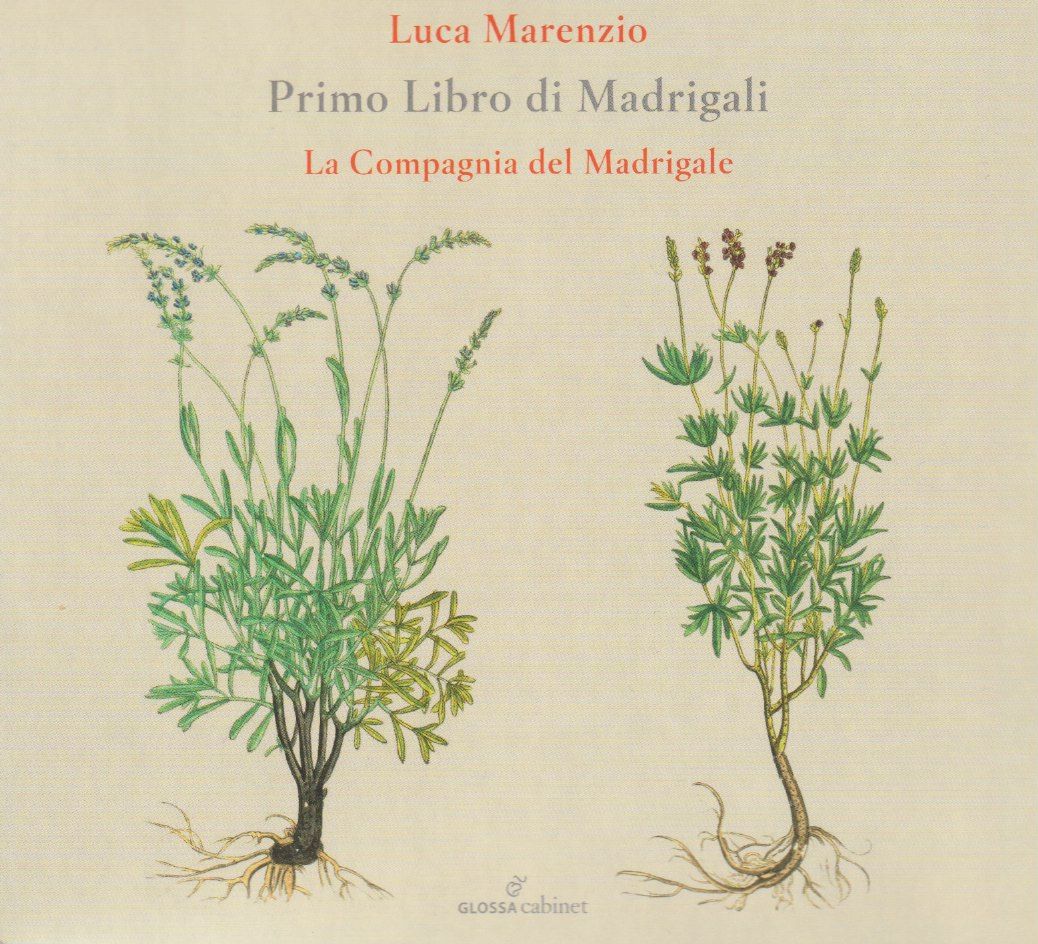Luca Marenzio: Primo Libro di Madrigali
All devotees of the madrigal should hasten forth to purchase!

Sometimes reviews or musical publications have an 'If you like x, you should definitely check out y' sections. Sometimes these degenerate into mere selilng opportunities, but here we have a real backbone to the suggesion.
Small wonder Marenzio wanted to study with Dowland, if this BIS disc we reviewed on Classical Explorer is anything to go by. And if you liked that, you will like this, albeit reversing the arrow of time - a sequence of 22 delicate madrigal gems, published in 1580 when the composer, Luca Marenzio (1553-1599) was only in his mid-twenties. Born in a small village near Brescia, Marenzio found himself in the service of the Cardinal Luigi d'Este, an influential patron based in Rome having studied, as far as scholars can tell, in Brescia and Mantua. He might have been in contact with the renowned composers de Wert and Marulo. Marenzio's first book of madrigals, which we hear here, was dedicated to the cardinal Luigi d'Este (brother of Alfonso d'Este, grandson of Louis XII of France). Later, Marenzio, along with Gesualdo and Monteverdi, was to be significant in the move from Renaissance to Baroque music.
For an introduction to this disc, here is Marco Bizzarini in an Italion-only video, L'arte di Luca Marenzio - but worth watching for non-Italian speakers for the beauty of the excerpts!:
The collection includes one erotic madrigal (Tirsi morir). Texts are magnificently varied, with the first madrigal we hear offering a superb exaple of powerful brevity: Liquide perle Amor (the “liquide perle” refers to tears that cannot yet extinguish passion). Listen to the superb use of imitative counterpoint in the introduction and conclusion (the different cover was that of the original release):
The alternations of delivery in the third madrigal, Spuntavan già, from light almost staccato to more chrodal and legato, point to the variety offered by Marenzio’s Libro, and also to the sheer expertise of these performances - oh, to hear this group live in a fine church acoustic!:
One of the most interesting madrigals is Doloroso martir, fieri tormenti, its harmonies ripp'd with pain through its use of dissonance. Listen to the melismas on the word “urli,” with its dark vowel "u" colour:
There are anticipations of Monteverdi, here, too, in the arioso Veuuta era Madonna, al mio languire, which prefigures the dialogues from Monteverdi's Quinto Libro (and is also the longest and, arguably, the most beautiful of the madrigals of Marenzio's Primo Libro:
One wonders if the word “Madonna” was a trigger for Marenzio, for his Madonna mia gentil (track ten) seems to take us to even greater internalised depths:
The final two madrigals are interesting: the first, Partirò dunque, is an unfrogettable portrait of departure:
.. followed by the remarkable O tu che fra le selve, in eight parts and polychoral (ie using two choirs that alternate and which means Marenzio can create echo effects):
There are significant “fillers” to the Primo Libro on thsi disc which are unannounced on the disc cover. From Dolci affetti (1582), the beautiful In quel ben nato, and from Primo fiore della ghirlanda musicale (1577), Donna bella e crudel, another piece that seems to include some polychoral imitative effects.
In between the se two gems sits the so-called “Sestina” Mentre ti fui sì grato, with each stanza set to music by six different composers: Giovanni Maria Nanino, Giovanni Battista Moscaglia, Marenzio, Giocanni de Macque (Jean de Macque), Francesco Soriano and Annibale Zoilo (all part of an informal group, Musici di Roma). The booklet notes sugges that the “most convincing” realisations are those by Nannino, Marenzio (of course, we’re “Team Marenzio” in this post), Nacque and Zoilo. No doubting the power of Marenzio’s setting:
.. but just listen to Moscaglia’s brilliant piece, so skillfully written, and poignant:
See what you thnk. No doubting, though, the poignant sonorities of the de Macque, or the beautifully lively Zoilo.
Originally released in 2011, this disc of Marenzio is re-released at a lower price and magnificently packaged with fine annotations and complete (Italian-only) texts. We cannot suggest this for an award going forwards as it is a reissue, but if we could, we would. A simply stunning disc - all devotees of the madrigal should hasten forth to purchase!
